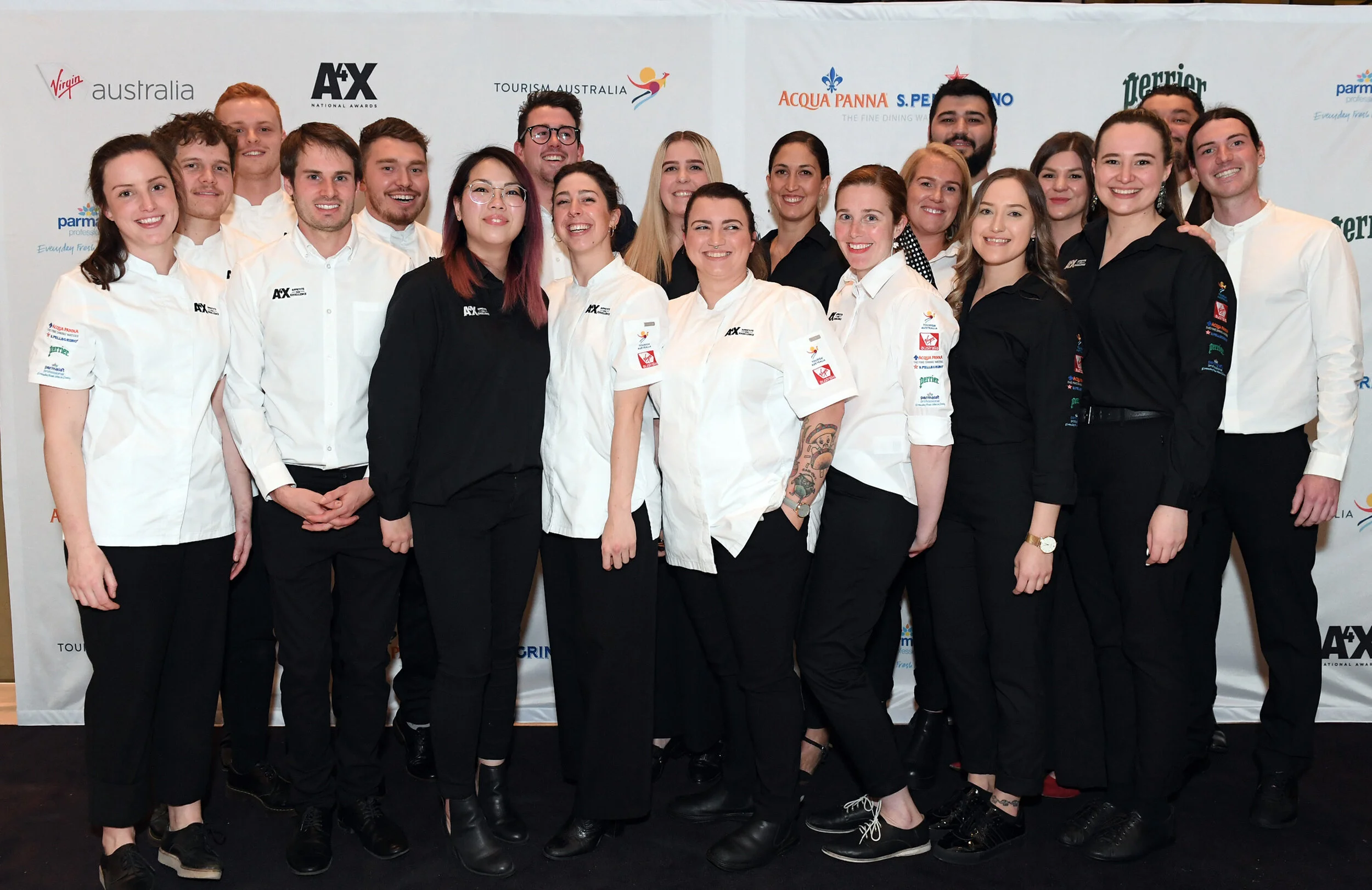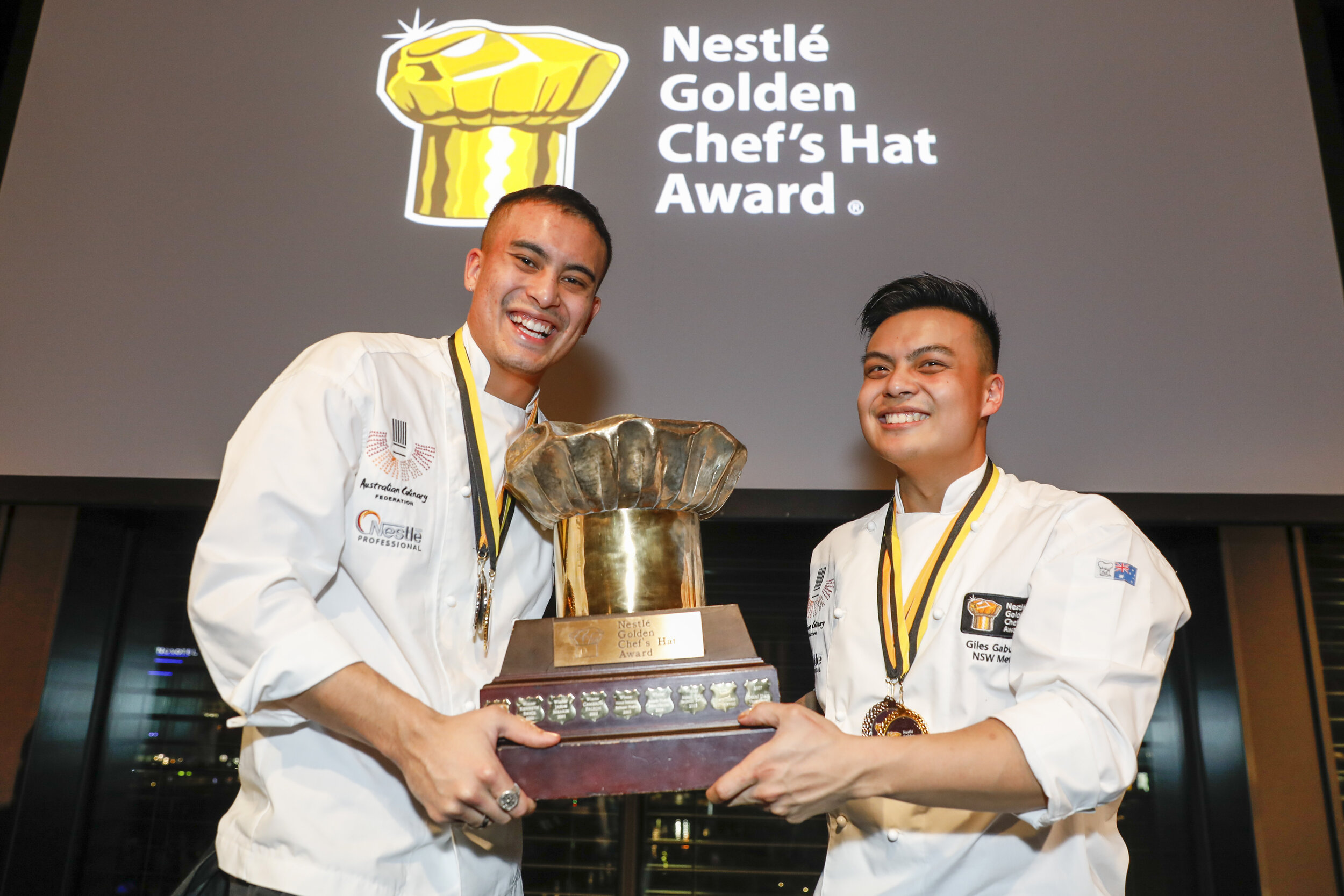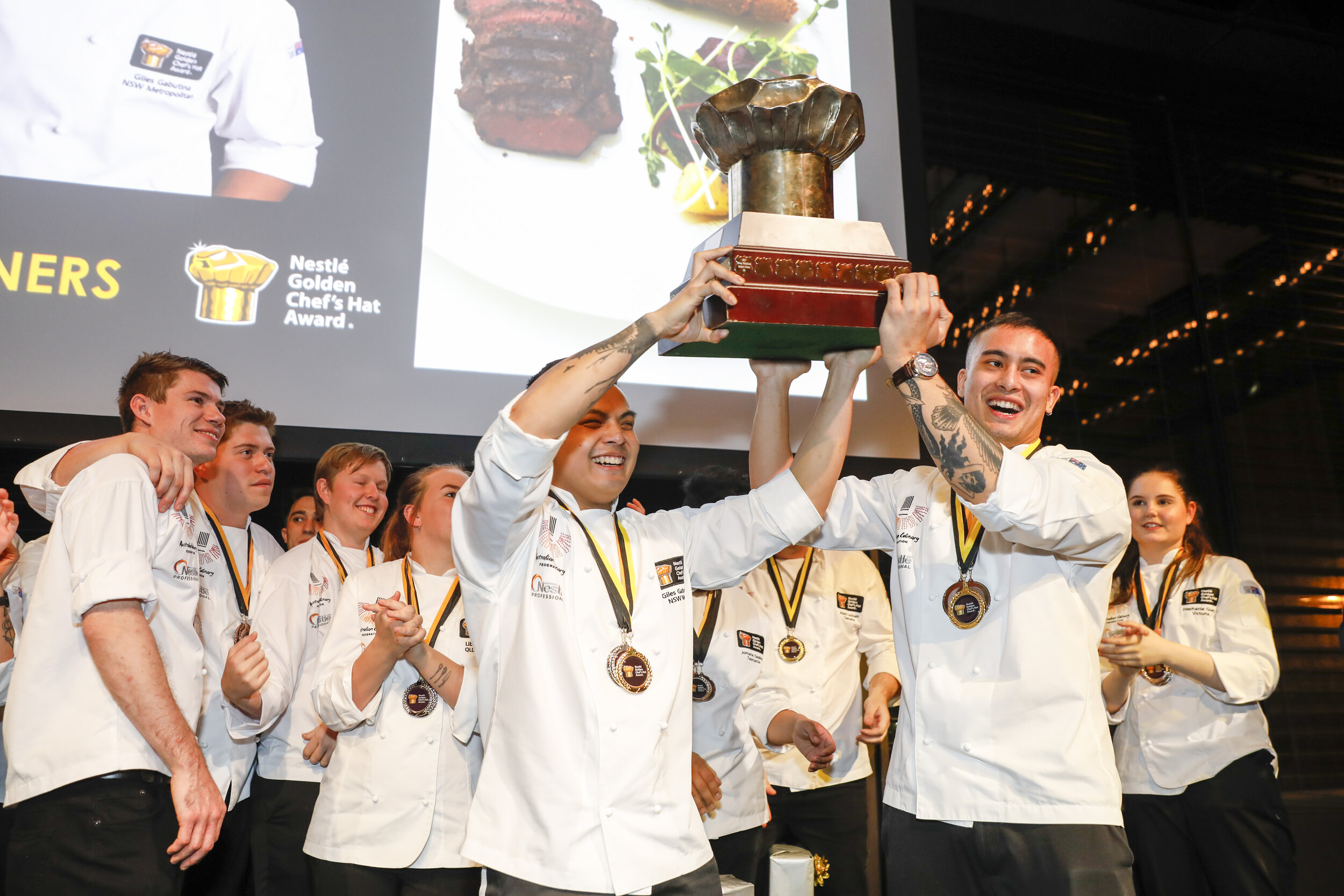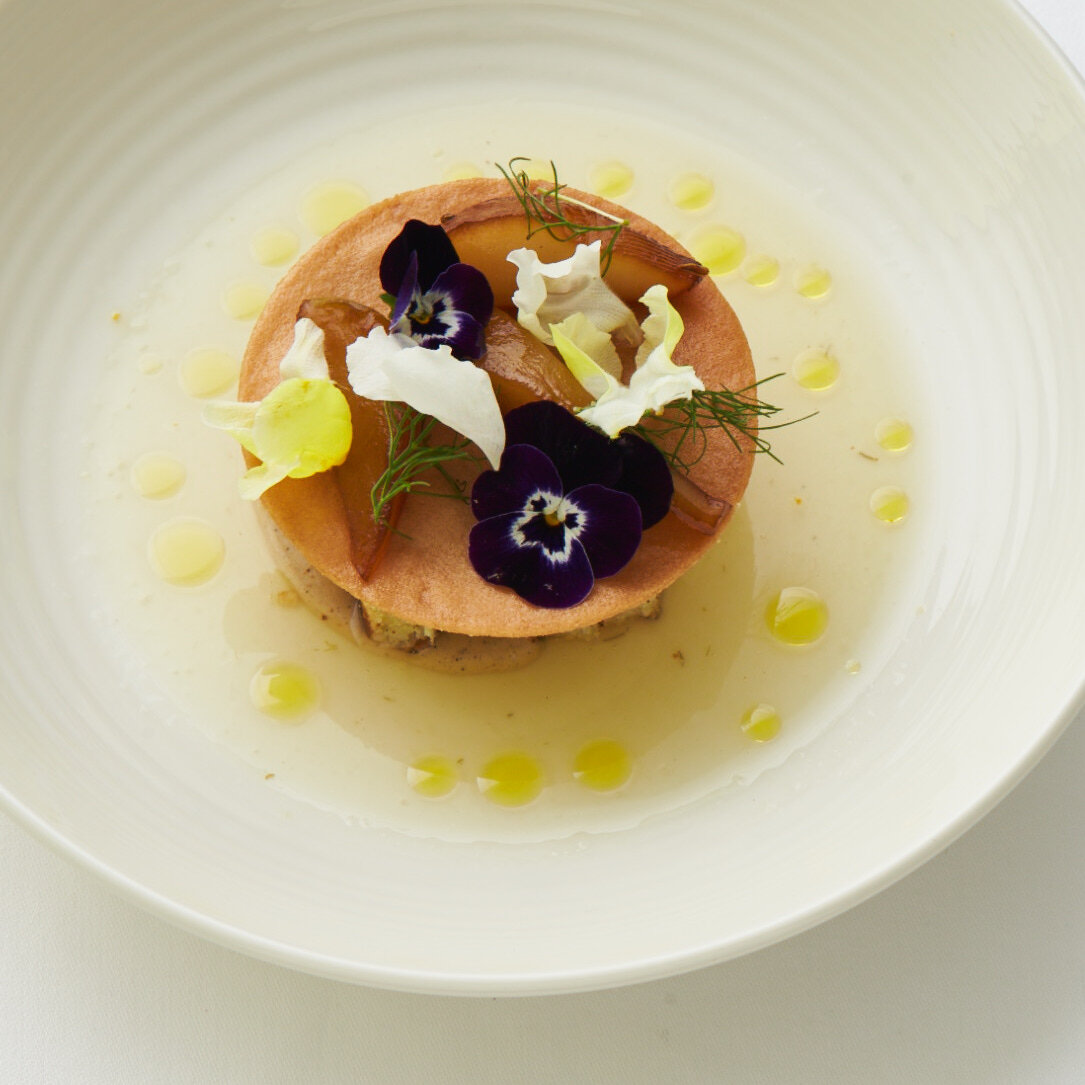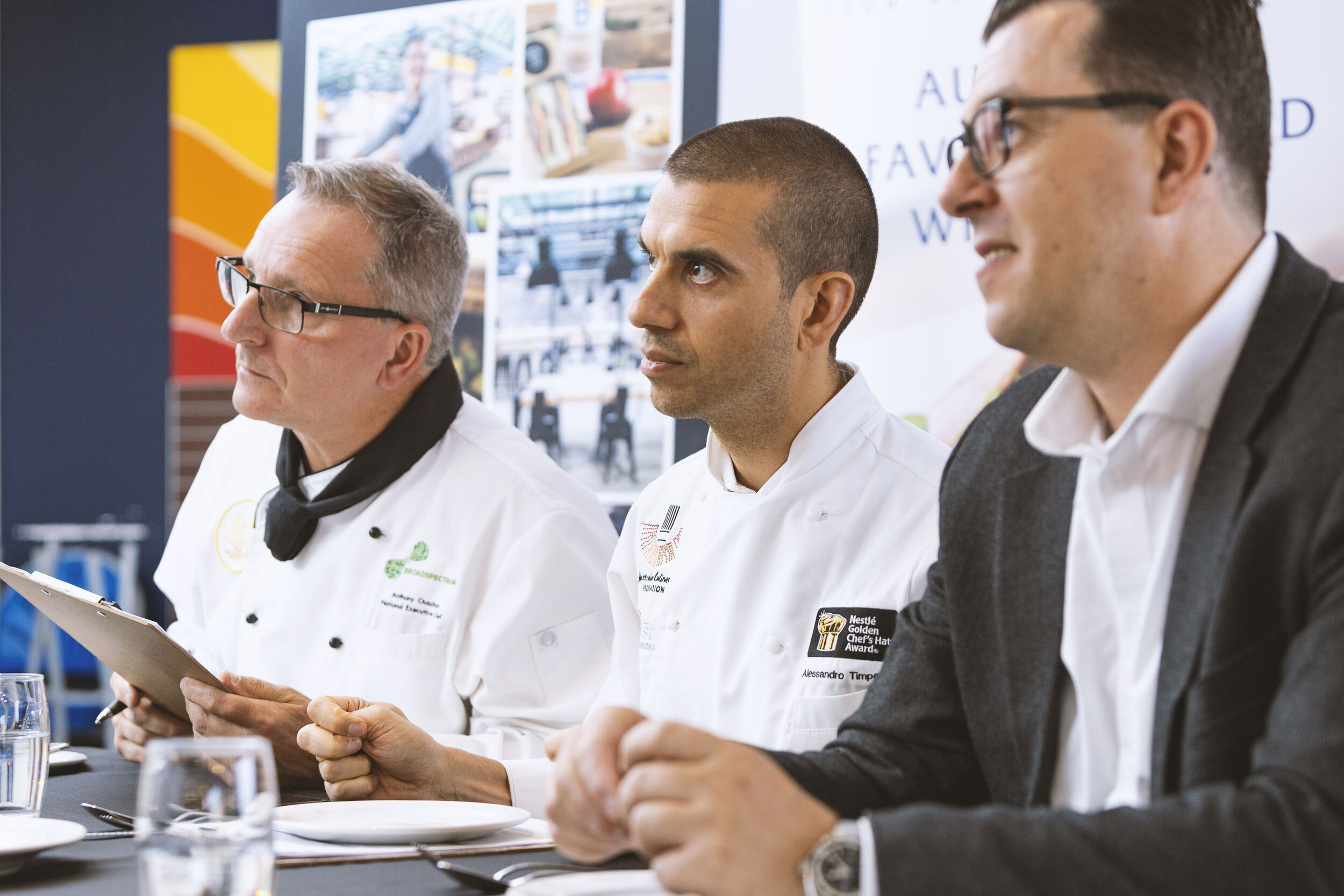How competitions and chefs’ programs can open the door to opportunity
CULINARY COMPETITIONS and further education programs aren’t just about benchmarking your skills against those of your peers – they provide much more in terms of opportunity.
ANDRÉ KROPP
“Participating in competitions opens doors in a big way, not just for apprentices but for older chefs too,” says André Kropp, who as Chairman of the ACF’s Culinary Committee is responsible for ensuring competitions run by the ACF meet the international standards established by the World Association of Chefs’ Societies (WACS) – along with those run by third party organisations seeking endorsement.
“One of the hardest things about competing is putting yourself out there and being judged by your peers – it’s not always an easy thing to accept, but the more you do it, the easier it becomes in your mind, and then you can focus more on the food side of it and what you’re trying to showcase.”
“The great thing about it is that it opens doors to a network of industry relationships, future job opportunities and work situations not just around the country but the world. Cooking is a transient industry, we all move around quite frequently, and in fact most junior chefs are encouraged to move jobs every one to two years. And the more you compete, the more you get to know certain judges – they see what you can do, you build up a bond with them, you might connect with them on social media, and then job opportunities arise as a result of that. So that’s one of the biggest benefits.
André adds that competing also teaches chefs to work in strict accordance with the various hygiene and OH&S standards. “This is very important because we all get audited by various offices around the country, and competing helps you stay in line with what you need to do in that regard. We have HACCP components in our competitions, so you have to be able to demonstrate the judges the integrity of the cold chain from delivery to the cooking environment - you have to show traceability as you would in your normal workplace.”
Accelerate your culinary career
Nestlé Professional Executive Chef Mark Clayton says “Competing really does hone your skills – it forces you to learn new things, much more so than you would in your actual workplace.” For the past seven years Mark has been heavily involved in the Nestlé Golden Chefs Hat Award competition which exists to support emerging culinary talents and provide a springboard for them to accelerate their culinary careers. The national winners receive an educational trip abroad which gives them the chance to see some of the world’s top chefs in action, learn about industry trends and establish valuable networks and contacts.
“This year is particularly special as we’ll be celebrating our 55th anniversary and it will include an exciting expansion for the competition - we’re looking to really pull out all the stops,” Mark says.
“We’re very pleased to announce that the competition will be broadened to include a new trans-Tasman element. Our launch into New Zealand will enable us to support even more chefs and elevate the competition to a new level.”
Camaraderie a key component of competing
Working alongside other chefs in team competitions provides great opportunity for camaraderie, as Andre Kropp affirms: “Being a chef is sometimes quite a solitary job – even though you might be working in a team environment in a kitchen, to work as a team in a competitive environment is very rewarding and opens doors into international competitions and ultimately the Culinary Olympics. It’s an honour to be selected for an international team and represent your country on the world stage.”
André acknowledges the competitive arena can be very demanding – “it’s not just about putting a plate up and saying, ‘I know what I’m doing’, you have to be able to take criticism and learn from it. Chefs, being chefs, sometimes don’t like to be told and it can be a bitter pill to swallow if you’ve done something incorrectly from an aesthetic point of view, but if you really sit back and analyse the criticism you’ll probably work out that what you’ve been told is right. And in our industry you also have a chance to argue your point to the judges – because sometimes a judge needs to learn as well. But you do that while competing, not post-competition. So if you have some new methodology or process and you’re being judged by a slightly older chef who may not have their head around it, sometimes they might say, ‘Wow, I’ve never seen that in practice’ and that will add more value to your dish because you’ve actually educated the judge about what you’re doing, in which case you’ve excelled.”
A chef’s true worth shines through in their food
André himself still competes occasionally: “I find it’s a world you can’t get away from. It stays with you – sometimes you say I’m going to focus on work now, but every now and then it’s good to jump back in the pool and do it. I’ve gotten many friends out of competing and that’s on an international scale. Out of the blue you can get a call from someone saying ‘I’m down in Hobart, do you want to catch up?’ and that can lead to something else. Yes, these days it’s easy to connect through social media but to see someone in person adds more credibility, and of course the true worth of a chef shines through when you can taste the person’s food yourself.”
Appetite for Excellence is another competition recognising young hospitality talent, with award categories for Young Chef, Young Waiter and Young Restaurateur. Entries are now open for the 2020 program which will see winners rewarded with return overseas flights and $2500 to help with travel and expenses, the opportunity to experience a stagiaire at a world-renowned restaurant and PR and media recognition. Appetite for Excellence finalists also receive an all-expenses-paid tour of one of Australia’s leading food and beverage regions to meet producers and learn about agricultural and viticultural practices.
As a complement to the range of competitions on offer in Australia, Proud to Be a Chef is a longstanding institution – Australia’s leading foodservice mentoring program which sees 32 apprentice chefs chosen from Australia to participate in a four day experiential journey which embraces not only a cook-off but masterclasses, skills workshops and visits to restaurants, wineries, production facilities and working farms. Our separate article on Proud to Be a Chef details the winners of this year’s program and looks at what mentors Mark Normoyle, Adrian Richardson and Lisa van Zanten showcased in their masterclasses.

